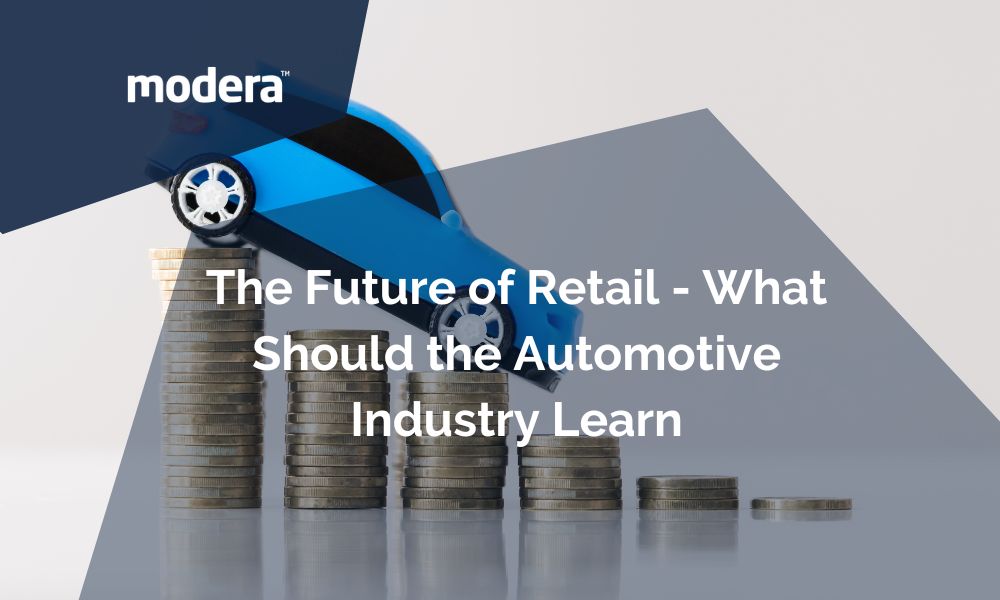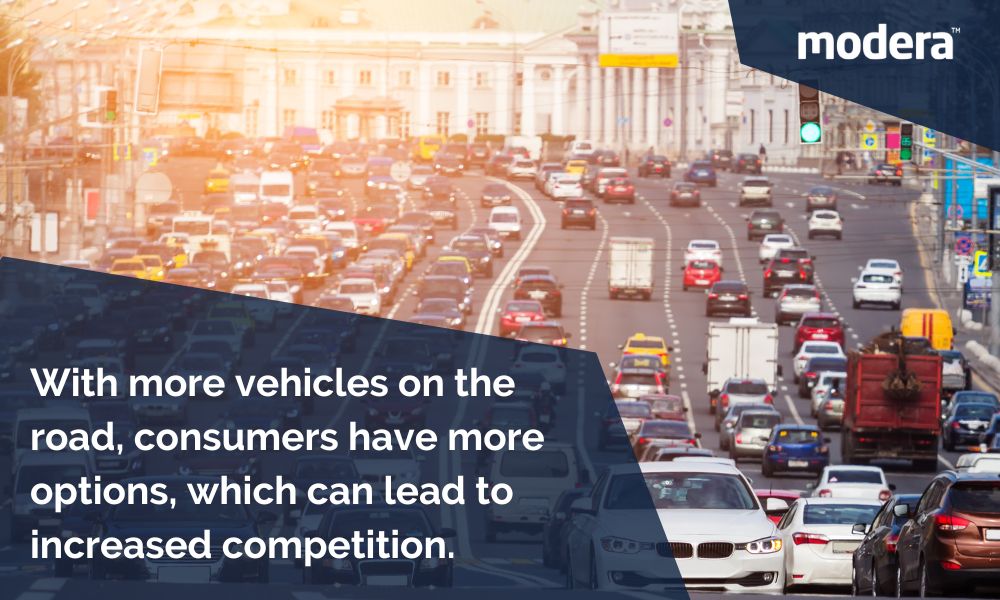
One thing that’s constant is change. The last few years have seen the automotive field go through drastic changes and the transition is far from complete. This time we’ll cover some of the main focus points from prioritizing user experience and creating a hybrid shopping experience to staying on top of data security – all for the name of a thriving automotive business.
Dealers are operating in a disruptive environment – the pandemic drastically changed the way vehicles are sold. Now, it is time for dealers to thoroughly review their operating models, identify and unlock operational efficiencies, and discover new techniques to survive in a digital omnichannel environment.
What is the future of retail?
Most consumers conduct research online, but many still prefer an in-person experience, particularly from dealerships with both physical and online locations. Rather than operating in separate lanes, online-only automotive retailers should collaborate with physical manufacturers, suppliers and service providers to provide a hybrid model. For instance, an auto parts dealer provides targeted website content to engage buyers, and once that objective is accomplished, customers are directed to in-person centers for test drives and completing their purchase. Both the dealer and brick-and-mortar facility benefit from tapping into each other’s networks and providing buyers with a seamless experience.
What should be the center of focus in the future of retail?
User experience above all
Vehicle supply is gradually recovering, so dealerships can have better inventory available, as per demand. With more vehicles on the road, consumers have more options, which can lead to increased competition. Dealerships have to focus on what makes them stand out from others in the market. It could be emphasizing an online sales tool, the ability to customize a vehicle, or an omnichannel sales process.
For example, many dealerships are providing an omnichannel experience to their buyers nowadays. It refers to technology and processes that provide consumers with a smooth and hassle-free buying experience, regardless of whether they shop online, offline, or both. Basically, it is about providing a seamless and convenient vehicle-buying experience.

Impact on the used car market
Franchised dealerships and publicly traded online used car retailers are likely to witness low consumer confidence this year, with the growth being rather slow. If inflation and higher interest rates continue to push consumers to postpone large purchases such as automobiles, dealers and those companies stand to lose money. In 2023, dealers and online players like Carvana and Vroom are likely to prioritize stabilizing profit per vehicle sold, over expansion plans.
Buyers are likely to be in control of the auto parts industry in the coming future. With more competitors entering the market, it is crucial to provide value for money at all stages of the customer journey. An improved supply chain, compelling user experiences, new technology, and a seamless online-to-offline transition, works wonders in connecting consumer intent with purchasing action. Retailers can fashion the automotive landscape to their advantage by putting customer engagement and digital technology at the forefront.

Emphasis on data security
Auto dealerships have to comply with the revised Safeguards Rule (as mandated by the Federal Trade Commission), which outlines how financial institutions, including auto dealerships, must protect consumers’ data. Compliance experts have already instructed dealerships not to put off taking the necessary steps to meet the strict rules and requirements. As data breaches and ransomware attacks become more common, tightening security is not only a regulatory requirement but also a good business practice.
The automotive industry is still grappling with pandemic-related supply chain and shipping disruptions, as well as ongoing part and semi-conductor shortages. Apart from these issues, there are other factors driving the industry towards the next paradigm shift, which includes advanced mobility and more sustainable practices. The future of retail involves dealers making smart decisions and significant changes to sales and marketing strategies, along with tweaking the business model. The trend toward digitalization of automotive retail has been building for a long time, and the pandemic simply accelerated the transition.

